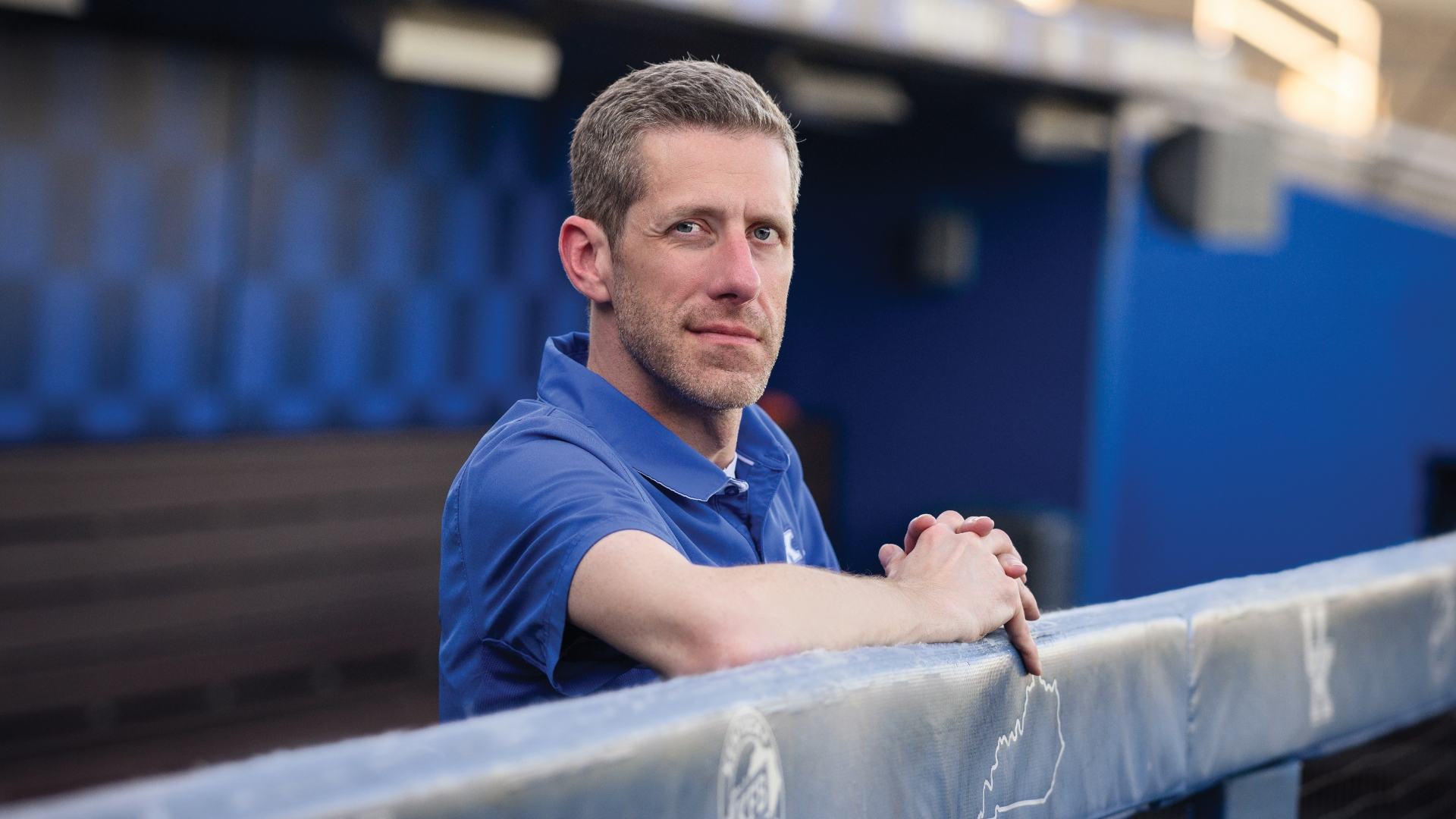
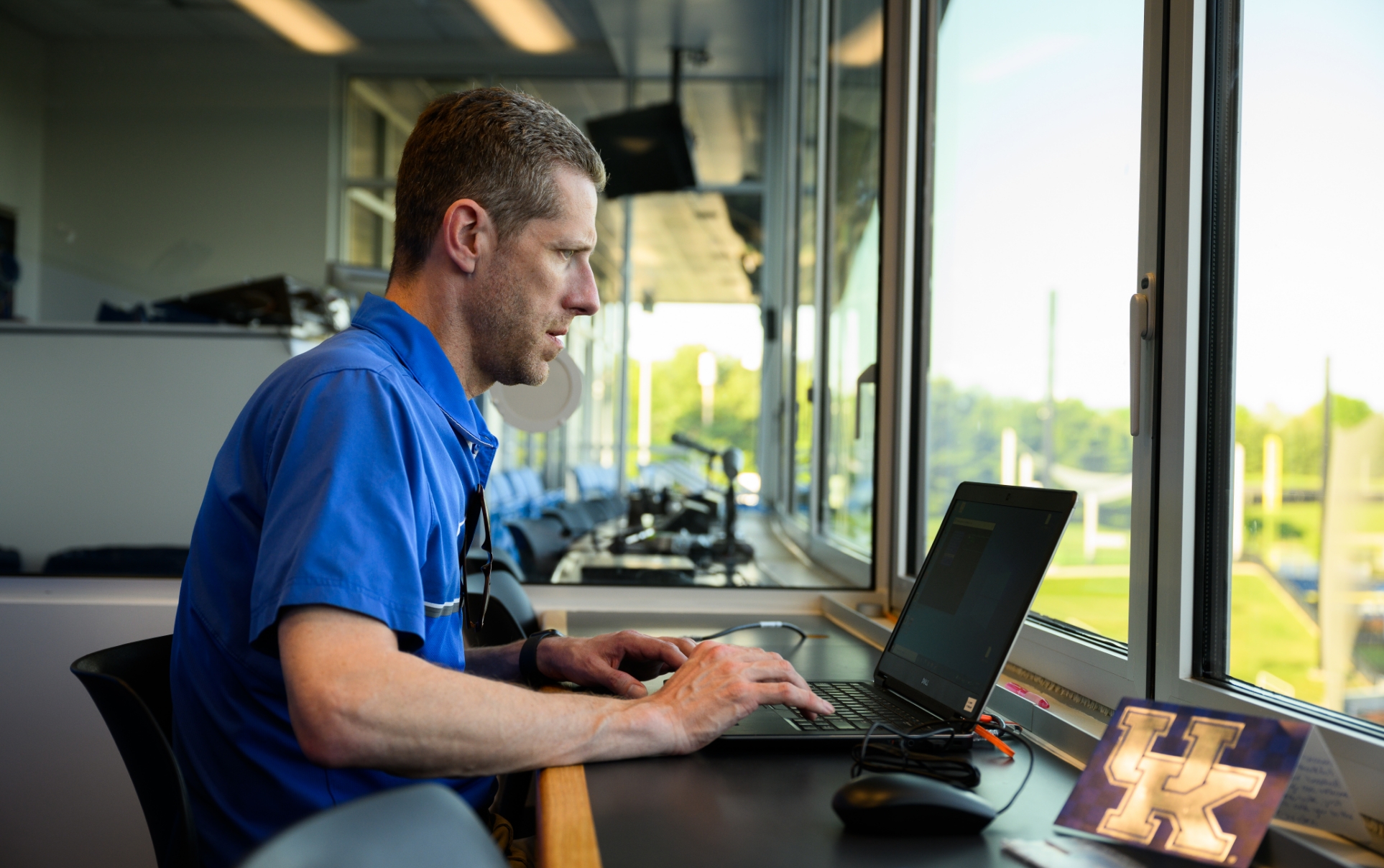
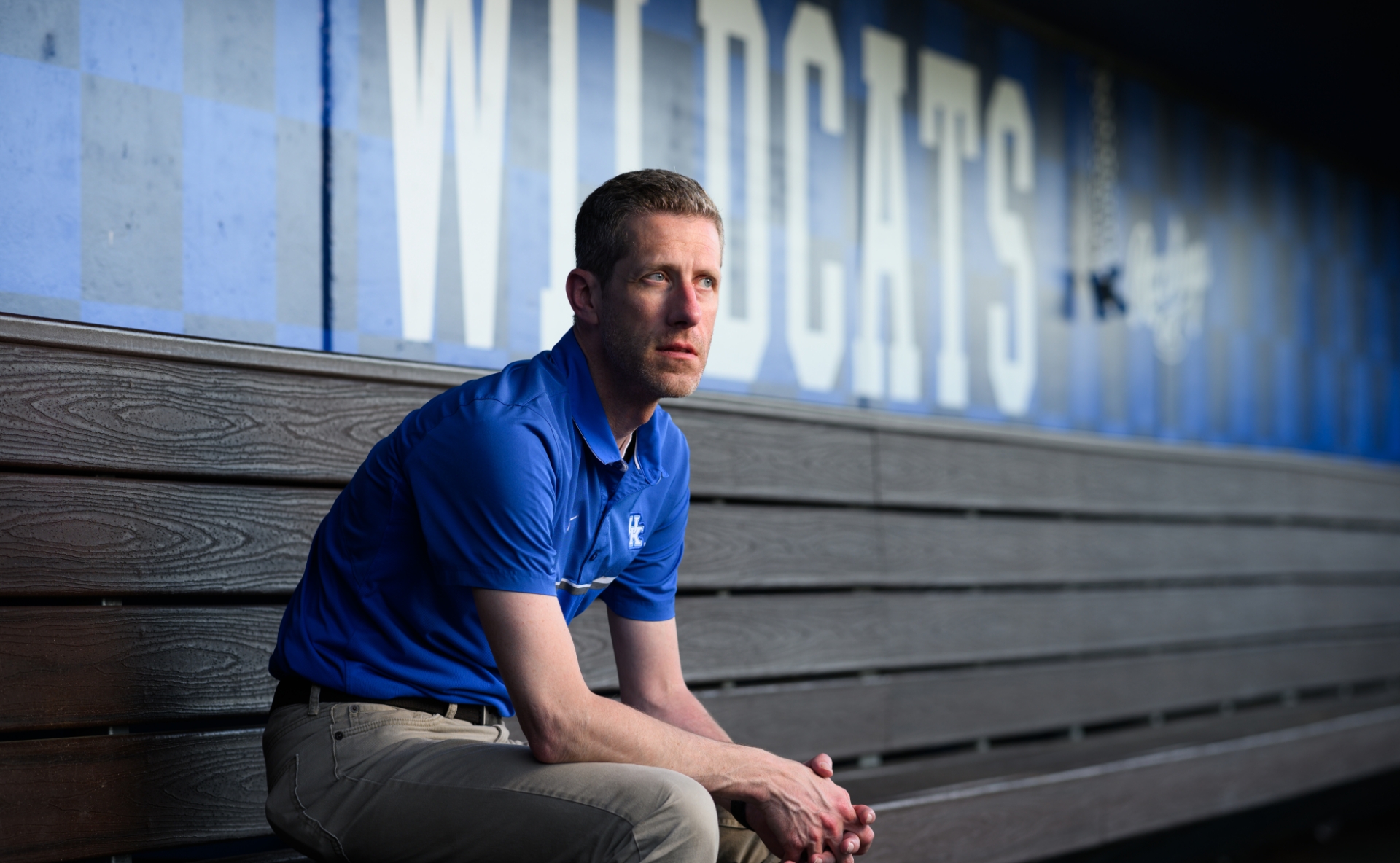
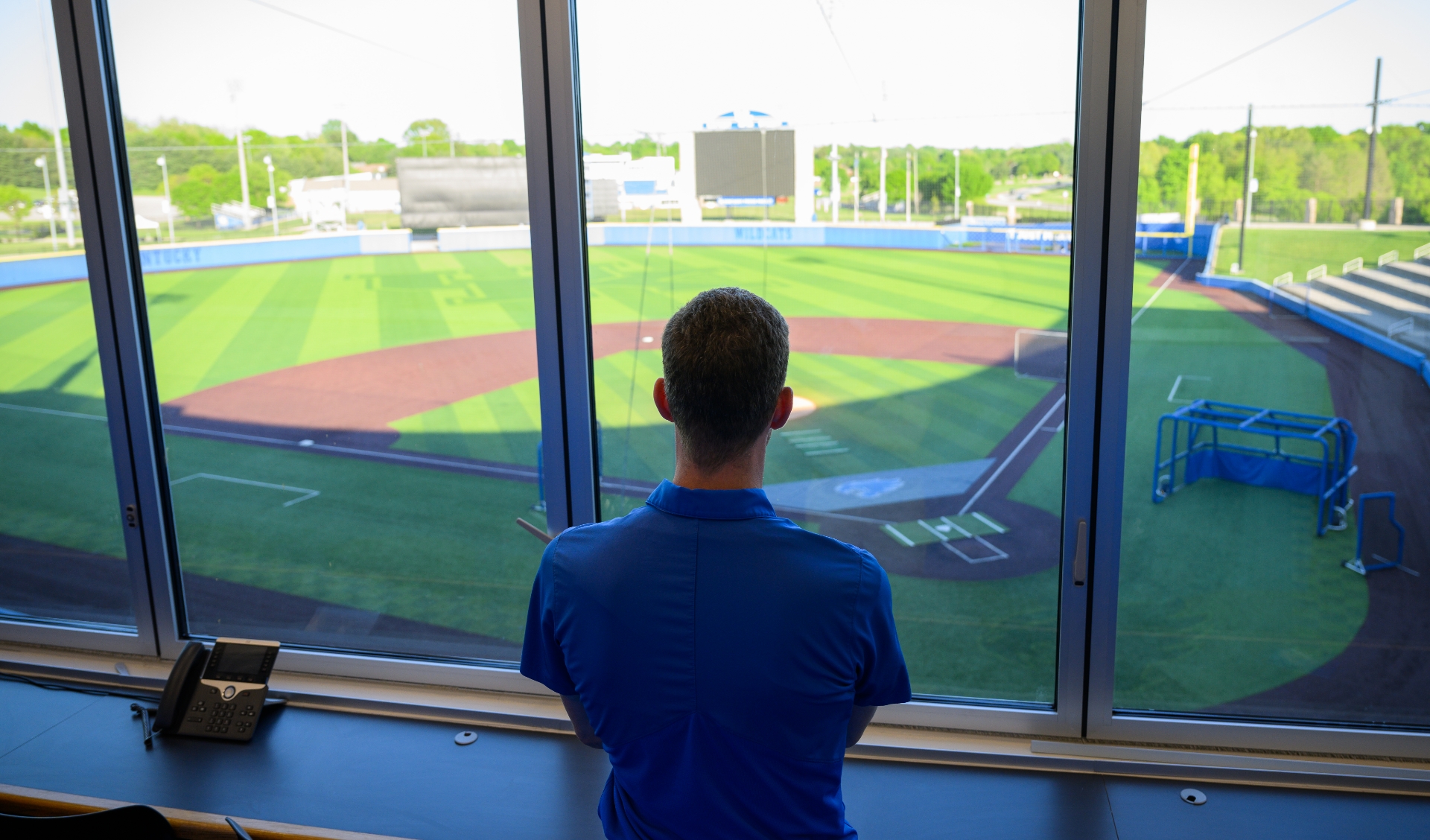
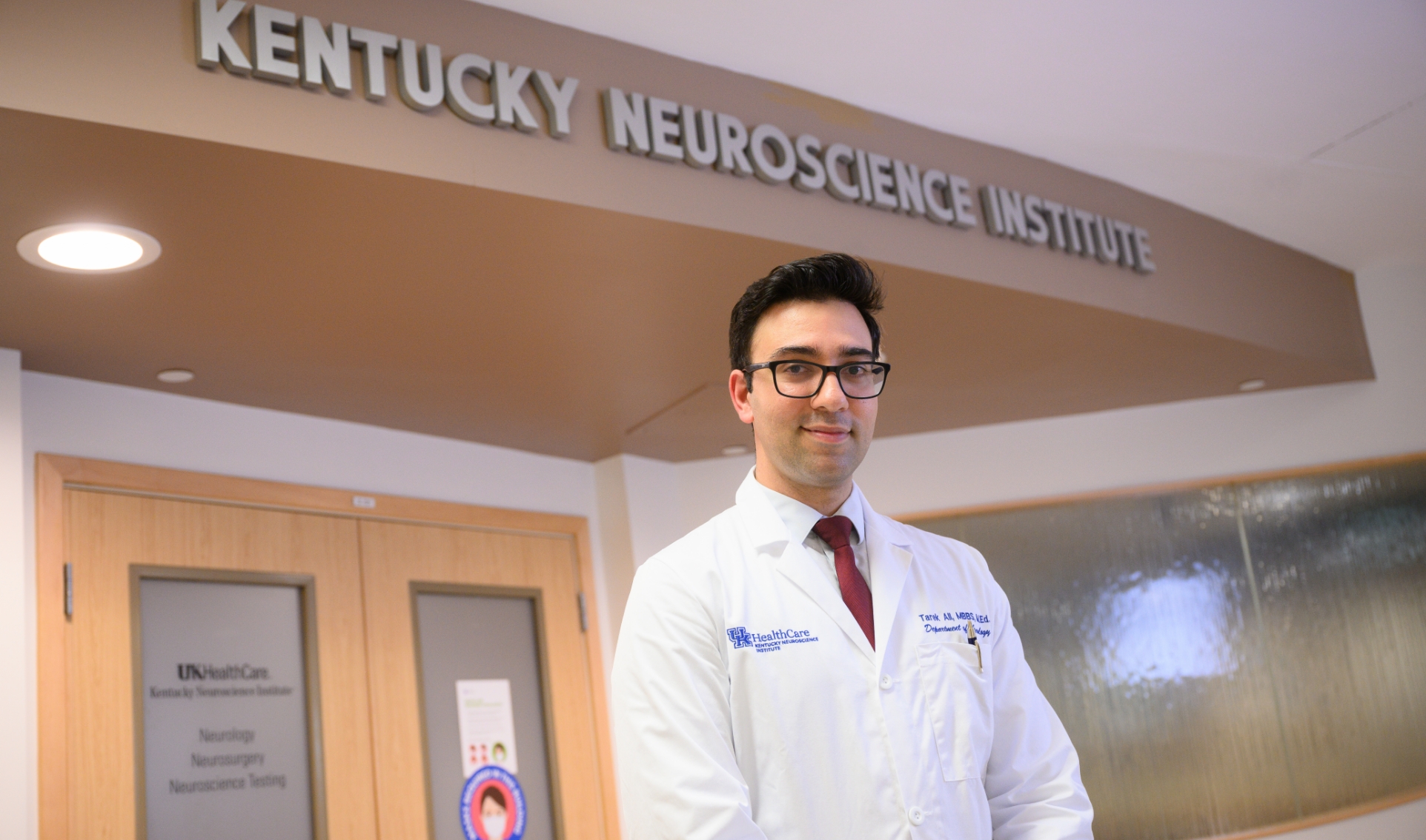
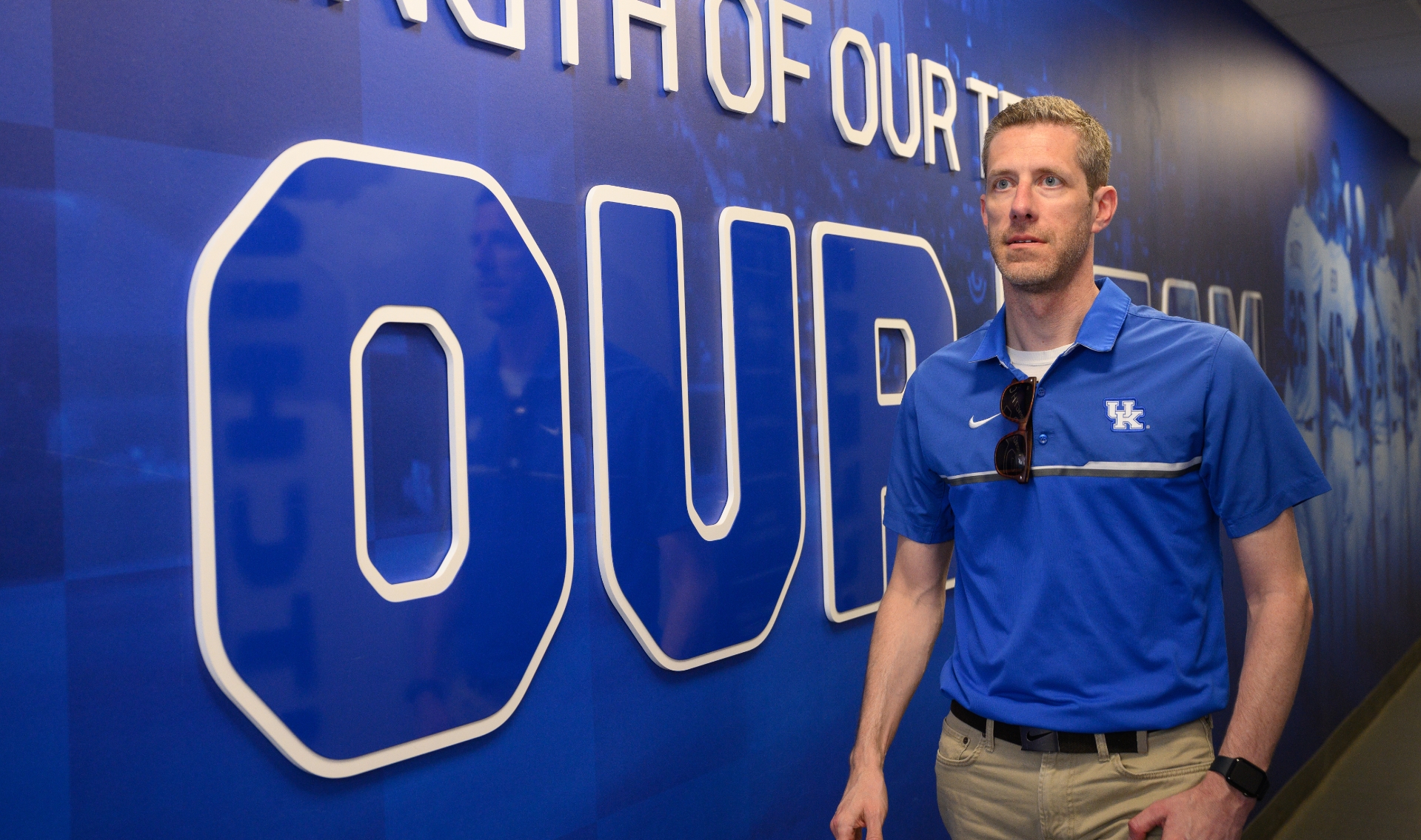
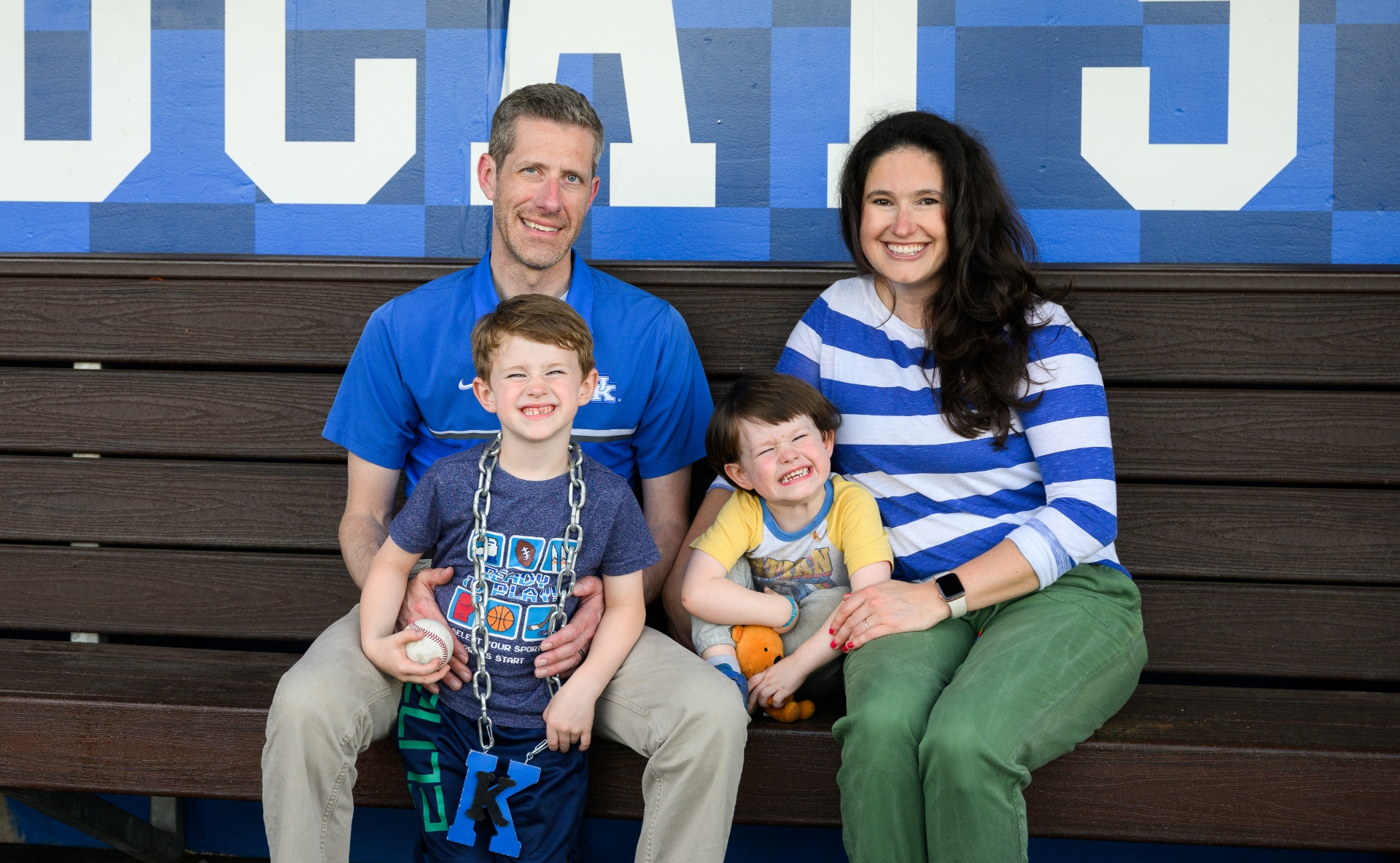

“I think I’m having a stroke.”
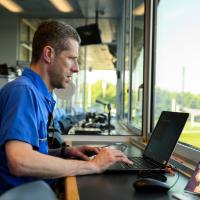
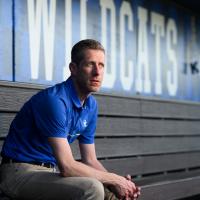
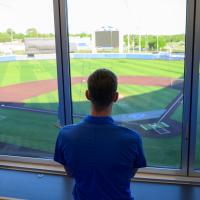
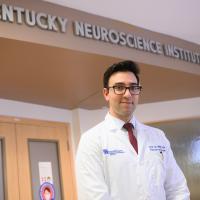
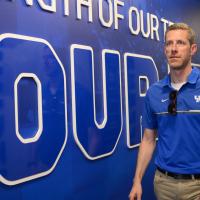

That’s how UK Baseball Coach Nick Mingione talks about Matt May, the Associate Director of Athletics Communications and Public Relations. Matt has proven his determination countless times over his years at UK, but it’s never been more clear—or more important—than in the days and weeks since he had a stroke.
It started when Matt was diagnosed with shingles a few months before his 44th birthday. An otherwise healthy, active guy, he didn’t let it slow him down much. But he was still feeling off weeks later, with more symptoms slowly piling up. On January 13, 2022, Matt woke up feeling a little shaky. While picking his older son up from kindergarten, he threw up at a red light and realized he had a bad headache. But the alarm bells didn’t start ringing for Matt and his wife Carmen until a day later.
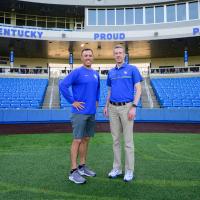

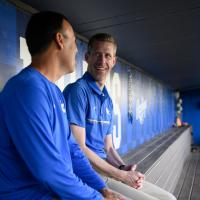
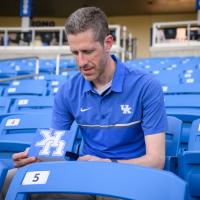
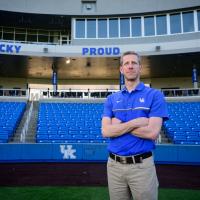
“Matt came down the hallway to get me and said, ‘Carmen, I think I’m having a stroke,’” said Carmen. “It sounded like he was ricocheting off the walls because he couldn’t walk in a straight line.”
Matt and Carmen knew the typical signs of a stroke, and the BE FAST acronym (Balance, Eyes, Face drooping, Arm weakness, Speech difficulty, Time to call 911). Matt’s symptoms didn’t look like a typical stroke. Carmen called 911, but when the paramedics arrived and assessed Matt, they determined he wasn’t having a stroke. After consulting with Matt’s doctor, Carmen took Matt to the ER for further testing.
It was the right call. While Matt waited in the ER, his symptoms escalated. The side of his face started drooping—a telltale sign of stroke. By the time he was admitted, the left side of his body and face were paralyzed.
“They knew I had a stroke because by that time, weakness and decreased tone were found on my left side—but they didn’t know why,” said Matt. “It took 48 hours and a spinal tap for them to figure out what had caused it.”
The culprit behind Matt’s stroke was surprising: the varicella-zoster virus—better known as shingles—crossed his blood-brain barrier, damaging blood vessel walls in Matt’s brain and causing a stroke.
“Your stroke risk is the highest the first month after your shingles diagnosis,” said Dr. Tarek Ali, Matt’s neurologist at UK HealthCare’s Kentucky Neuroscience Institute. “Matt’s stroke was three weeks after he got shingles.”
“When I first arrived at the ER, one of the doctors put me on an IV drip for shingles, so I had already been on it for two days when they found out the virus caused my stroke,” said Matt. “It ended up being a 14-day cycle to kill the shingles virus and get everything cleaned up. It was so great she thought ahead.”
Thankfully, Matt’s stroke hadn’t impacted his cognitive or speech abilities. He still had his quick wit and sense of humor—he just needed to focus on re-learning how to walk and use his left hand. Matt’s care moved to Dr. Stephen Porter at Cardinal Hill Rehabilitation Hospital, where UK HealthCare Physical Medicine and Rehabilitation provides post-stroke care.
Immediately after arriving, Matt got to work with his physical therapists and occupational therapists to rebuild his strength on the left side of his body. It was frustratingly slow, but Matt stayed upbeat and positive, with his eyes on the prize: getting home for his birthday. He made it with a day to spare, walking across his lawn with only a cane for help.
As Matt healed, he and Carmen leaned on the support of family, friends, and the larger village that is UK Athletics. Coach Nick Mingione personally talked with Matt’s rehab team. Coach Mingione’s wife, Christen, set up a meal train that filled up in a matter of hours. Players sent Matt handwritten letters to keep his spirits up. Coworkers even sent Matt a pair of shoes without laces so he could put them on by himself. The support was overwhelming—and it made a difference.






